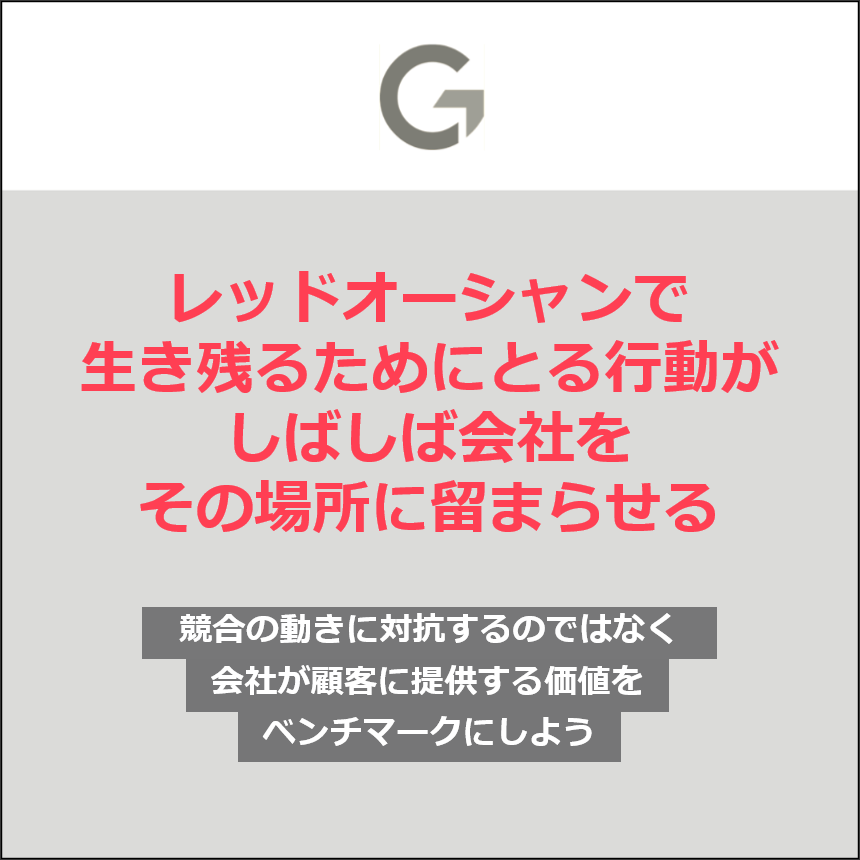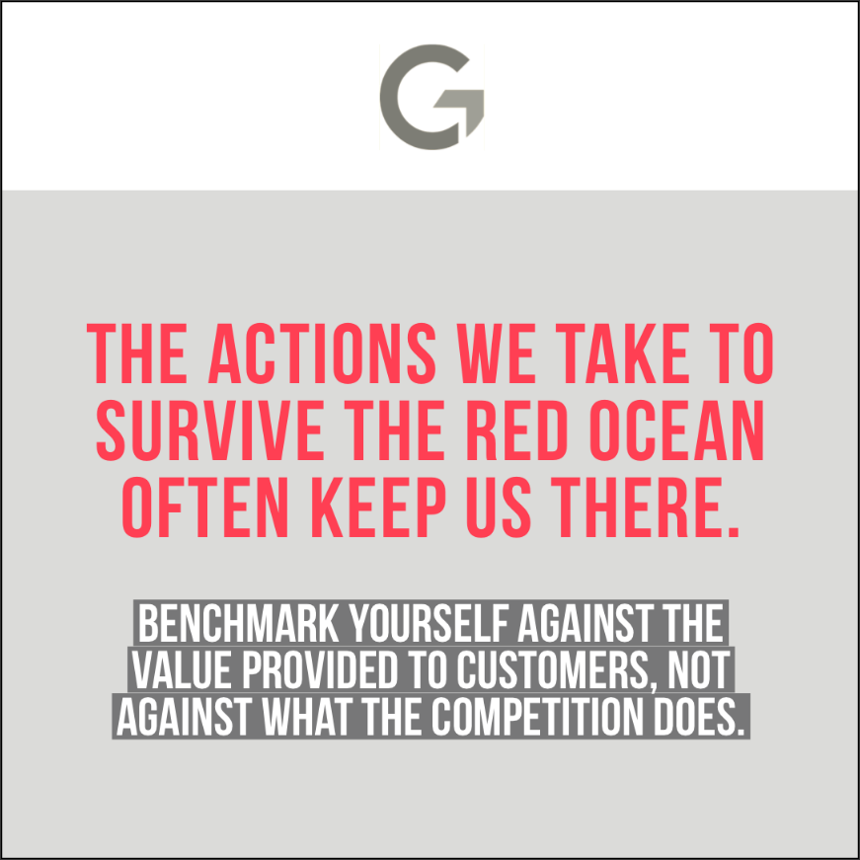|
あるミートパイメーカーの売上は、類似のプライベートブランド商品が小売業者によって発売されたことで下落しました。競争に勝ち残るためにミートパイメーカーは(原価の一番かかる肉の量を減らすことで)商品の価格を下げ、販促費用を削減しました。その結果、ブランドの差別化ができなくなり、売上がさらに下落しました。
マイクロソフトのZune('06)やHP のTouchPad('11)、フェイスブックの携帯電話('13)をご存じですか?競合に対抗するために、類似の(見劣りする)製品を焦って発売した事例です。 またサーキットシティ、タワーレコード、ブロックバスターは、売上を増やし勝ち残るために、急速に事業拡大し、出店を加速しましたが、そのほとんどは失敗に終わりました。その後、デジタル時代が到来しました。 あらゆるコストを削減し、(販促と言う名のもと)どんどん値引きし、新商品の投入を急ぎ、商品ラインを大幅に拡大し、出店を加速し、新しい地域、新しいセグメントを次々と追加するなど… 市場が飽和状態になるか、商品が成熟すると、企業はレッドオーシャンで経営せざるをえなくなります。売上を確保しようというプレッシャーは、利益に打撃を与える行動を引き起こします。そこから抜け出す唯一の方法は、会社が何を得るかではなく、顧客に何を与えられるかを果敢に問うことです。これまでは不可能だった方法で、顧客の限界を取り除く能力をベンチマークにしましょう。 Vertical Divider
|
A pastry brand’s sales dropped when retailers launched a similar private label product. Fighting to stay in the game and be competitive the company made the product cheaper (by reducing the expensive meat ingredient) and restricting the marketing spending. As a result there was less brand differentiation and sales plummeted.
Do you remember Microsoft Zune ('06), HP TouchPad ('11), Facebook phone ('13)? Just a few examples of trying to respond to competition by quickly releasing similar (yet inferior) products. Circuit City, Tower Records, Blockbuster tried to grow sales and cope with competition by rapidly expanding, opening more branches, most of which failed. And then came the digital era. Cutting cost across the board, giving more and more discounts (disguised as “promotions”), rushing the introduction of new products, exploding the range of products, adding more stores, territories, segments… When the market get saturated or products mature, companies operate in a red ocean. The pressure to get sales translates to actions that eventually destroy the bottom line. The only way out is to bravely ask what you give to customers instead of what you get. Benchmark yourself according to your ability to remove customers’ limitations in a way that was not possible before. |
|
|



